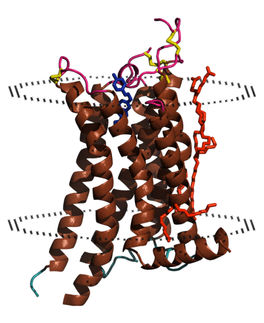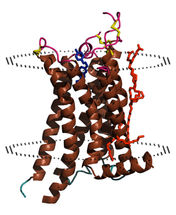nanoDSF Goes GPCR Characterization

nanoDSF Supports GPCR Compound Screening and Buffer Optimization
A thermal unfolding based assay using low volume differential intrinsic tryptophan scanning fluorimetry (nanoDSF) was applied to study the stabilizing effects of ligands on G protein-coupled receptors (GPCRs). GPCRs are the fourth largest superfamily in the human genome and are the largest class of targets for drug discovery.
The human adenosine A2A receptor (A2AR) binds natural (adenosine and caffeine) and synthetic ligands with different affinities to mediate a variety of physiological and pharmacological responses. Several well-characterized ligands were used for the unfolding experiments. The ΔTm shift values obtained from nanoDSF analysis and traditional ligand binding studies correlate well with each other.
We further characterized a second human GPCR target (test-GPCR) for which traditional cysteine-reactive DSF has been problematic. nanoDSF demonstrated that small molecule ligands can stabilize the detergent-solubilized receptor, thus showing the target GPCR is active in a selected detergent and lipid-free environment. In addition, we report a buffer composition screen to further stabilize the receptor in its detergent environment for biophysical assays.
Based on our results, we show that the nanoDSF technology will allow the development of an automated screening platform in a label-free environment to evaluate a large number of compounds for lead discovery and to improve receptor stability for biophysical assays by screening buffer conditions.
Download white paper now

nanoDSF Goes GPCR Characterization
nanoDSF Supports GPCR Compound Screening and Buffer Optimization